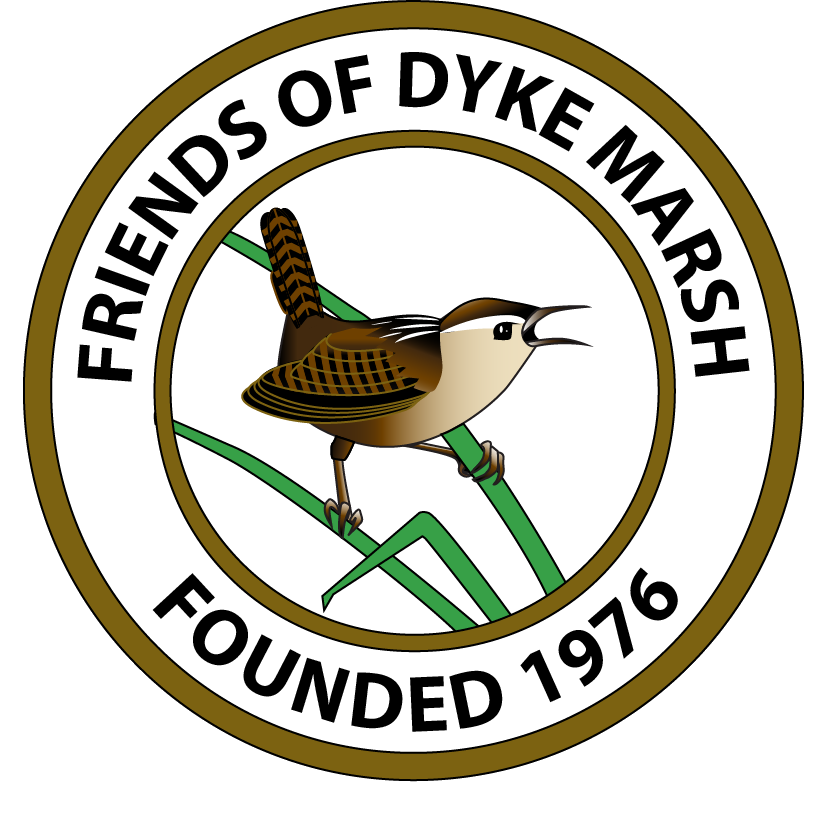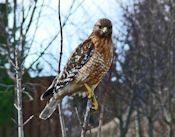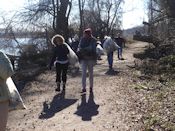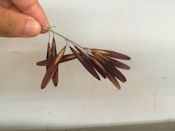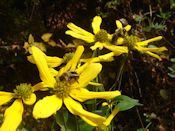Many FODMers participated in the National Audubon Society’s annual Christmas Bird Count (CBC) in January 2016. Larry Meade, president of the Northern Virginia Bird Club, gave this report in the club’s February newsletter, The Siskin:
News
On the morning of January 18, 2016, the annual Martin Luther King Day of Service and winter’s coldest day so far, 20 hardy volunteers organized by the Northern Virginia Conservation Trust (NVCT) visited the Dyke Marsh Wildlife Preserve. Braving temperatures in the high teens and a brisk wind whipping across the river, the group removed English ivy climbing up trees and collected five bags and a plastic crate of trash.
In September 2015, a team from the North Carolina Botanical Garden, working with National Park Service staff and the Friends of Dyke Marsh, collected thousands of pumpkin ash seeds (by the bunch, pictured) from a score of different trees in the preserve. The team has concluded that the seeds are likely viable and in early 2016, they are drying them for long-term storage.

The November 30 Chesapeake Bay Journal includes an article by Whitney Pipkin on the Dyke Marsh restoration project, its need, history and near-term schedule. Thank you, Chesapeake Bay Journal.
Among many other accomplishments, Henry David Thoreau and Thomas Jefferson were diligent phenologists. They kept detailed journals in which they recorded the timing of events in nature -- when trees leafed out, when flowers bloomed, when the ground was warm enough to plant.
